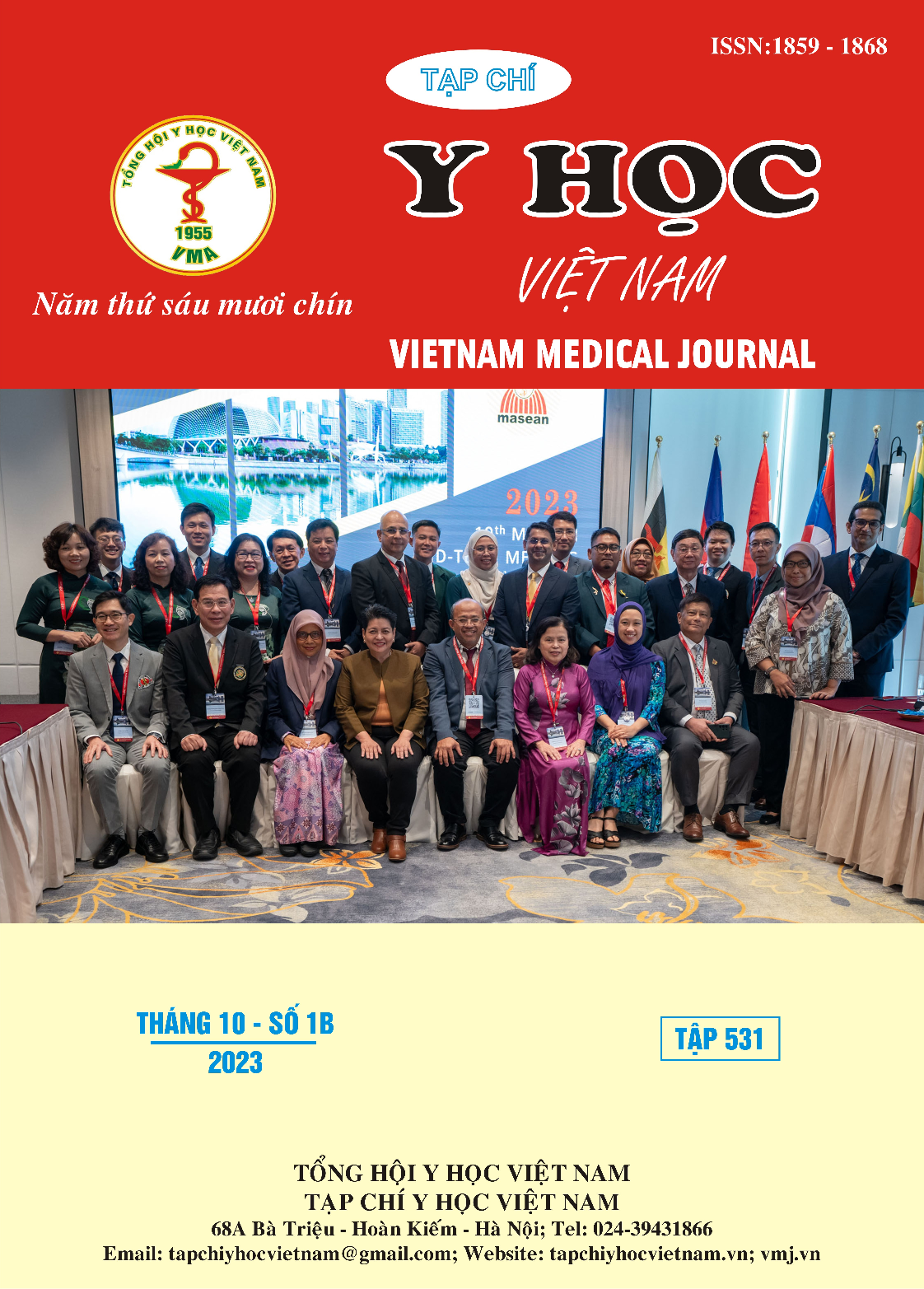APPLICATION OF METAGENOMIC METHODS IN ANALYSIS OF DIVERSITY OF MICROBIOM IN RATS OF ANTIBIOTIC ASSOCIATED DIARRHEA
Main Article Content
Abstract
Objective: To use metagenomic methods in 16s DNA gene analysis to evaluate the variation of gut microbiota in a white rat model of antibiotic-associated diarrhea. Methods: White rats were induced diarrhea with Lincomycine at a dose of 5g/kg/24h. At the end of the experiment, the mouse cecum samples were collected, sequenced the V3 -V4 region of the 16S rDNA gene and used Qiime2 software to analyze the diversity of bacterial species in the intestinal tract of white rats. Results: Antibiotics reduced the alpha diversity of the gut microbiota. In terms of bacterial composition at the phylum level, the group using antibiotics increased the phylum Bacteroidota and Proteobacteria and decreased the phylum Firmicutes. At the bacterial genera level, antibiotics reduced the abundance of the genera Lactobacillus, Bacillus, Clostridium innocuum, Romboutsia, Erysipelatoclostridium, Muribaculaceae, Hungatella, and UBA1819 and increased the abundance for the genera Bacteroides, Pseudomonas, Escherichia-Shigella, Lachnoclostridium, Proteus, Robinsoniella. Conclusion: The diversity of the gut microbiota was reduced with the use of Lincomycin. Antibiotics significantly increase harmful genera such as Bacteroides, Escherichia-Shigella are two prominent and interesting genera in the gut microbiota.
Article Details
Keywords
Metagenomic, gene 16S- rDNA, antibiotic-associated diarrhea (AAD).
References
2. Barlett JB. Antibiotic Associated Diarrhea. The New England Journal of Medicine. 2002; 346: 334-339.
3. Culligan EP, Hutton ML, Lyras D. Metagenomics and novel gene discovery: promise and potential for novel therapeutics. Virulence. 2014; 5(3): 399-412.
4. Guery B, Galperine T, Barbut F. Clostridioides difficile: diagnosis and treatments. BMJ. 2019; 366: 1-19.
5. Guo H, Yu L, Tian F, et al. Effects of Bacteroides-Based Microecologics against Antibiotic-Associated Diarrhea in Mice. Microorganisms. 2021; 9(12): 1 -14.
6. Ling Z, Liu X, Cheng Y, et al. Clostridium butyricum combined with Bifidobacterium infantis probiotic mixture restores fecal microbiota and attenuates systemic inflammation in mice with antibiotic-associated diarrhea. Biomed Res Int. 2015: 1-9.
7. Shin NR, Whon TW, Bae JW. Proteobacteria: microbial signature of dysbiosis in gut microbiota. Trends Biotechnol, 2015; 33(9): 496-503.
8. Wu H, Chen Q, Liu J, et al. Microbiome analysis reveals gut microbiota alteration in mice with the effect of matrine. Microb Pathog. 2021. 156: 1-9.


